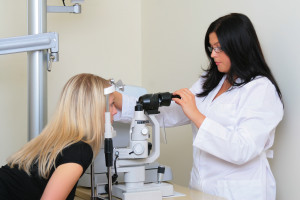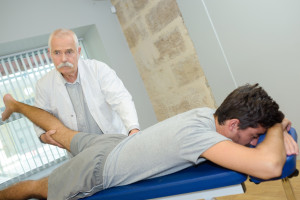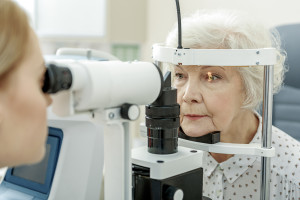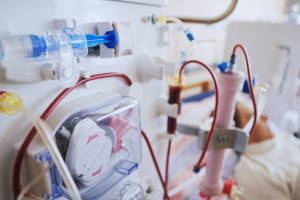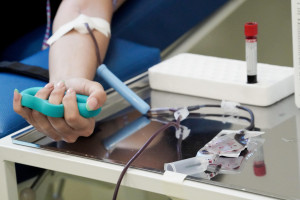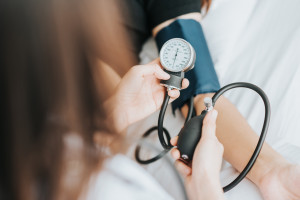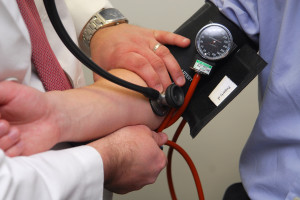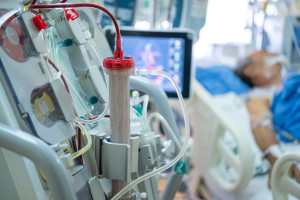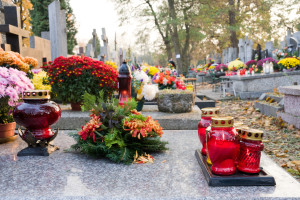Beware of strong storms. Everyone forgets about this during a storm

Author: Prepared by KKR • Source: gov.pl • Published: 26 June 2025 15:37 • Updated: 26 June 2025 15:37
The Institute of Meteorology and Water Management has issued an alert – approaching phenomena may pose a serious threat to life and property. Experts emphasize: storms can be extremely dangerous. Check what absolutely not to do at home during a storm. It could save your life.
When thunder strikes, most of us instinctively close our windows and stay indoors. And rightly so – it’s the safest place to be when a violent storm is approaching. But even in your own four walls, you can unknowingly expose yourself to danger. Lightning striking a power line or building can cause serious damage – from fire, through electrocution, to failure of home appliances.
According to data from the Government Security Center, we are increasingly dealing with so-called violent storms – with strong winds, heavy precipitation and a large number of atmospheric discharges. The reaction must be quick and conscious – because what you do not do may decide about your safety.
The Main Headquarters of the State Fire Service explains how to behave properly during a storm to avoid real danger:
- Listen to current weather forecasts in the media – they include warnings about dangerous weather phenomena;
- Remove items from balconies, terraces and window sills that can be carried away by the wind. Remember that they can create unnecessary danger for you, your loved ones and bystanders;
- Close windows and doors;
- Turn off electrical and gas appliances whenever possible;
- Do not plan trips to the mountains, do not leave the house, e.g. for shopping;
- Provide a minimum supply of drinking water, food and essential medicines;
- Check that you have emergency lighting (e.g. a flashlight) and a charged mobile phone on hand;
- Do not observe dangerous weather phenomena. During a storm, do not approach windows and doors;
- If you are in a building in the centre of a hurricane or tornado, sit against a load-bearing wall, away from windows and doors, preferably on the lowest floor, e.g. in a basement;
- Absolutely do not seek shelter or stop - do not park your car under trees, poles and power lines. Remember that tall elements are excellent at attracting lightning and it is best not to be near them during a storm. Also do not seek shelter under such light structures as bus and tram shelters;
- It is best to wait out the storm indoors;
- Avoid open spaces. If you have no way of sheltering from a storm or hurricane, it is best to use depressions in the terrain (a ditch, a deep hole) - during a hurricane, take shelter in it, during a storm do not sit, do not lie on the ground - crouch;
- Step away from metal objects and do not touch them.
Do not use appliances plugged in:
- During a storm, the voltage in the network can increase dramatically. A lightning strike to a power line can "burn" not only a router, computer or TV - but also shock the user.
- Always unplug devices from outlets, and ideally invest in certified surge protectors.
- Avoid contact with tap water - do not take a shower or wash dishes
- This is not a myth. Water in pipes and plumbing systems themselves conduct electricity. If lightning strikes a house or sewage system, there is a real risk of electrocution.
- Experts warn: stop bathing or washing up immediately after hearing the first thunder.
- Do not touch wires, taps, radiators, pipes or metal door handles
- Metal is a great conductor. Holding onto metal objects during a thunderstorm can make you a path for current from the lightning.
- This also applies to window frames and metal stairs.
- Make sure that children and pets do not have contact with them.
Don't ignore IMGW warnings - a storm is not the time to take risks. Take care of your safety and the safety of your loved ones before it's too late. These rules can protect your home, health, and even life.
Copyrighted material - reprint rules are specified in the regulations .









